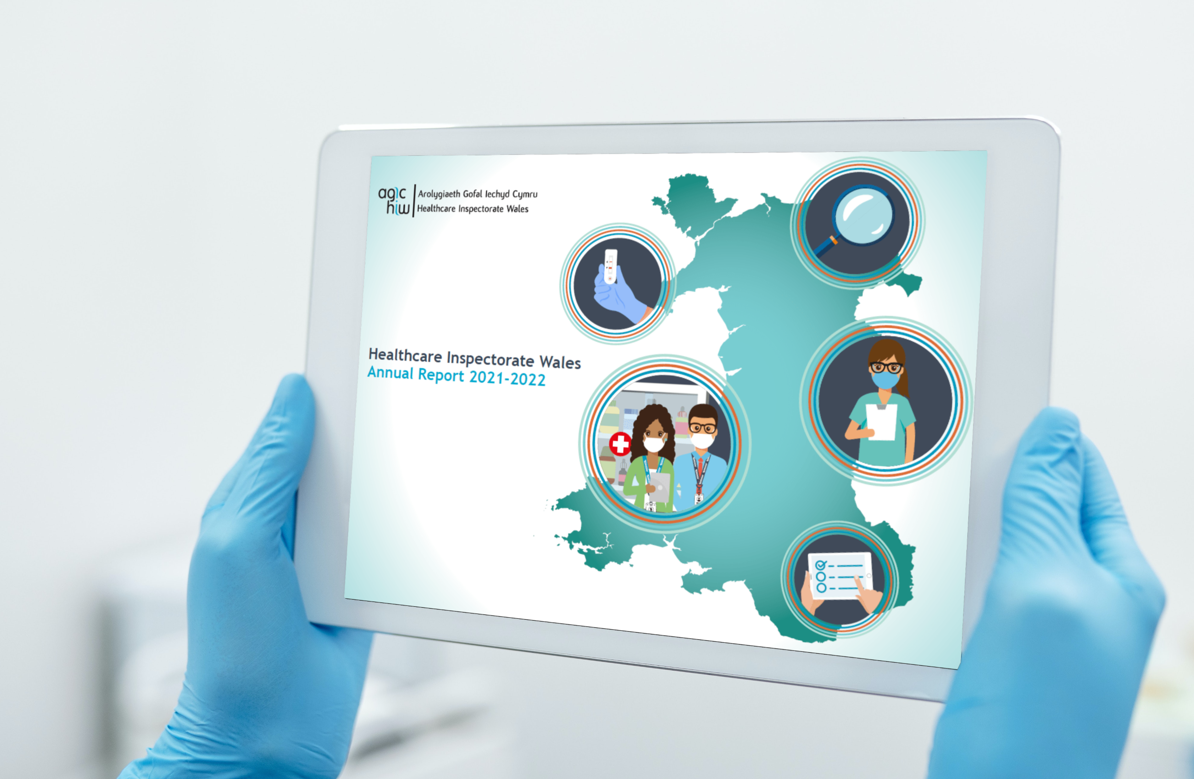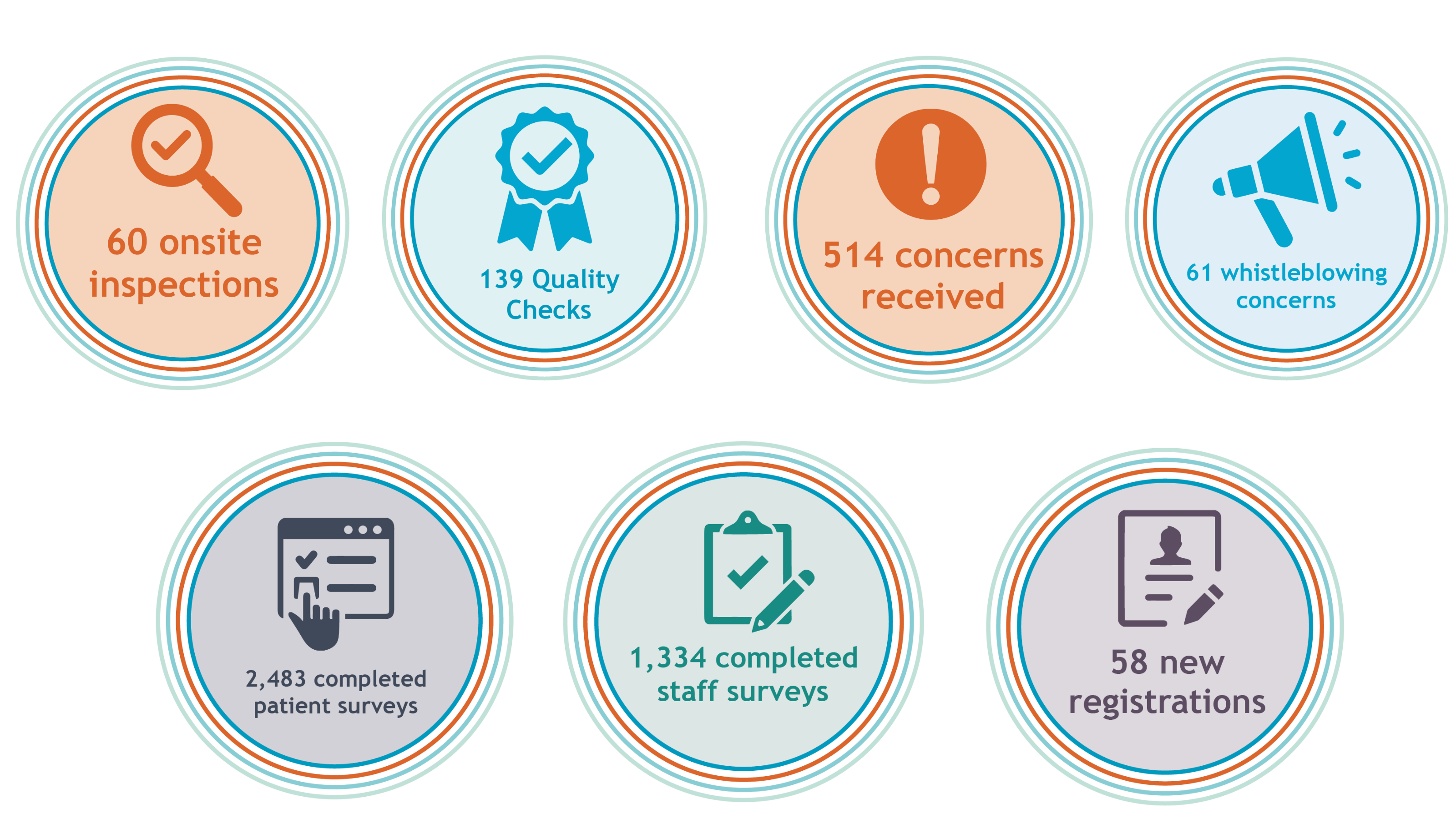HIW Annual Report finds pressure on healthcare services in Wales post pandemic
Today (28 September) we have published our annual report for 2021-2022. Our report summarises all activity, including the inspection of NHS and independent healthcare services. The report identifies sustained pressure on emergency care, staffing concerns, risks around managing patient safety and the accessibility of face-to-face appointments.

The report highlights how we have continued to focus on patient safety by challenging healthcare services and health boards to look for different ways of working to improve outcomes for patients. Healthcare staff were engaged during inspections and worked constructively to tackle any issues highlighted.
During the 12-month period we continued with a full range of assurance and inspection activities, building on enhanced ways of working and taking action where standards were not met.
During the year we undertook nearly 200 pieces of inspection and assurance work and handled over 500 concerns from the public and healthcare staff. A Service of Concern process for NHS services was introduced, and is used where there are significant service failures, or when there is an accumulation of concerns about a service or setting. The intention of the process is to drive forward improvement and learning.
Overall, we have found the quality of care provided across Wales has been of a good standard. However, through our work we identified healthcare services continue to be under intense pressure from the impact of the COVID-19 pandemic.
The report provides an overview of our national and local reviews, including mental health crisis prevention and how healthcare services across Wales met the needs of people and maintained their safety during the pandemic.
Through our inspection and assurance work we identified a clear difference between scheduled and unscheduled care. We identified many more areas requiring improvement within unscheduled care compared to scheduled. Scheduled care areas, such as oncology and cardiac wards, where the staff have more control over admission and patient flow had fewer areas for improvement.
Whilst the responses received to our staff questionnaires indicating low staff morale, including challenges around staffing numbers and high demand for services, this did not generally seem to impact on the experience patients had of staff. Once again, patients who were receiving services were overwhelmingly positive.
Many of the changes introduced to deal with the challenges of COVID-19 have altered the way patients access healthcare services. The issue of access to face-to face GP appointments was prevalent. People told us that they could not always get appointments when they needed them, and found it difficult in some areas to access practices by phone. We also found that an element of digital exclusion has continued, with some people unable to access services due to a focus on online and telephone consultations.
Many settings were issued with improvement plans following our findings and recommendations, which continue to be reviewed by HIW staff.
This annual report also sees us scrutinise our own performance as an organisation over the past year. We have reported on progress against our priorities and commitments across our work.
Alun Jones, Chief Executive of Healthcare Inspectorate Wales, said:
In a year which has seen healthcare services work hard to restore services which had been paused, whilst continuing to deal with emerging variants, outbreaks, and further peaks of COVID-19, we have seen significant turbulence. The strength and resilience shown by healthcare staff, who continue to deliver care and treatment in the best way they can, despite the many challenges they face daily, is commendable.
Once again, patients have told us of their positive experiences of staff despite highly demanding circumstances.
It is clear there are many challenges ahead for services, for the staff who work within them and for the people of Wales whilst the immense task of service recovery continues.
